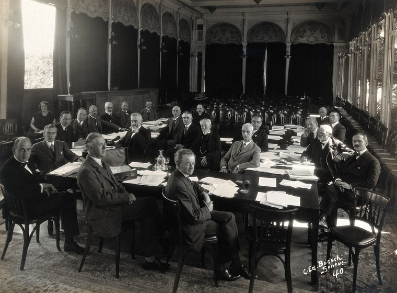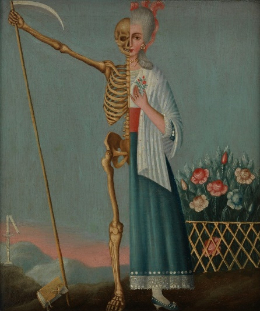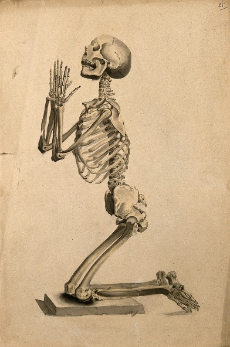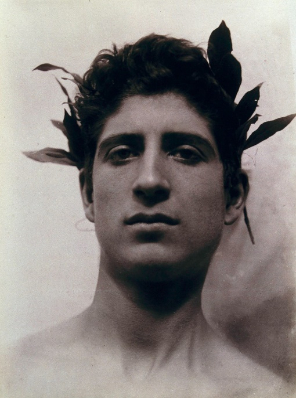 |
four services are offered
for novels, memoirs, poetry collections...
|
- mentoring one-to-one in person for a year
- manuscript assessment
- two-day masterclasses for work-in-progress
- small themed workshops
NOTE: All the images on these mentoring pages are be found at Wellcome Images and are from the Wellcome Collection unless otherwise stated. Captions are on the final page. In Michelle Lovric's interview with the Simon Chaplin on the History Girls website, you can read about the Wellcome's decision allow free use of its images (with acknowledgements).
...but first, when does a writer need
a creative tutor?
|


Your manuscript is much more than an idea,
but somewhat less than a publishable book.
You've crafted and redrafted
and even sent out your work.
Perhaps you're feeling
frayed or even flayed
after rejections
that leave you both cast down
and confused about
where you're going wrong.
|

|

Perhaps you've attended
so many workshops
and received
so much contradictory advice
that you no longer know
which way is up?
|

Amid so much noise,
how does a writer
find and keep
his or her own authentic voice?
How do you produce
publishable work
without compromising
your creativity
or losing sight of the idea
that inspired you
to write in the first place?
|
|
Creative tutoring in the form of a mentor provides a year's personal access to a published writer who will shadow your work through a whole draft. The aim of a mentor is not to spoon-feed you and or rewrite your book. Instead, mentoring helps you express your own ideas in a more fluent and engaging manner.
Creative workshops provide refreshment, pleasure and community. However, if you're already passionately committed to your novel or memoir, even wonderful workshops can be a something of a distraction from your core work.
Having your own mentor is different: it means working not in the abstract with general exercises but in close focus and specifically on the material you've already written, the scenarios you've plotted, the worlds you've created, the voices you've crafted.

A mentor is a friendly ghost hand
even when you're alone with your manuscript.
|

Your mentor will read your book in full.
Its pulse will be taken;
its vital signs will be checked.
Your mentor will identify
what's already working well
in your writing,
both creatively and commercially.
|

The problems you're facing
will also be analysed.
It's not just a question
of first aid...
but a deeper approach,
starting with a full and honest
diagnosis of your writing issues.
Each writer has his or her own personal dragons to fight.
|


You may find it hard to separate
personal issues from writerly ones.
There could be insecurity about research.
Maybe poor tuition at school or college has left
your grammar with embarrassing lacunae.

|
|
Have you been accused of wooden dialogue?
Are you struggling with ways to embody
character in plot and plot in character?
Or perhaps you need help to identify
what's bent out of shape and
what just isn't working.

|

Once you've identified
your specific difficulties
With the help of your mentor,
you'll be provided with
a war chest
of personalized tools
for dealing
with them.
|

You'll be advised how to
best to shape, edit and cut your work.
You'll be helped to avoid
unnecessary contortions
and edit out nuts & bolts
that just don't need to be seen.
You'll learn how
less is often more.
|

Your characters
will be interrogated.
By investigating
what lies beneath their skins,
your characterization
will become
more real, more compelling.
|

You'll look at ways
to develop characters
and hatch plots
based on their
characteristics...
|

...and learn how
to drill down
into motivations
and desires
that shape
satisfying storylines.
|

You'll have your own
private masterclass in villainy,
looking at ways to evoke
fully-rounded monsters
who are not caricatures
and are still human...
|


You'll be guided towards
creating fully-fleshed
and credible
good characters
who are neither boring
nor saccharine...
|

You'll learn new ways
to mediate
between the genders...
|

...and how to write
for and about
children,
and the special
issues of the child voice
and consciousness
in novels for all ages.
|

Working with diagrams,
collage and
imaginative organisational skills,
you'll be shown how to
weave different strands
of a story together...
|

...and where to locate
the heart of your story
(It won't always be
where you think.)
|

You'll be helped to write
good and bad births, deaths and marriages.
|

You'll learn techniques
for conveying fear and suspense
without over-writing or over-telling,
to keep your reader on the edge
of his or her seat.
|

You'll be shown how
to embed clues in the plot,
without being
too obvious or too obscure...
|

...and how to ramp up
humour and pace
with skilled timing...
|

...as well as how to let your book
breathe in natural,
satisfying and
readable rhythms.
|

You'll be given
a toolkit
for effective
world-building...
|

...and learn how to create
and deploy a sense of place
so that your setting
becomes a living part
of your story...
|

You'll be given tips
on realistic,
energized dialogue...
|

...and the
written language
of facial expression
and gesture.
|

You'll be helped
to write about
love and sex
without descending
into either
sentimentality
or grubbiness.
|

You'll consider how
each of the six senses
can refresh
your writing...
|
|
...and receive tips
on leavening
your serious writing
with comedy.

You can expect suggestions
for reversals of expectations
that will help to
enliven your plots.
|

You'll learn the value
of talismanic objects
in plotting
and character-building.
|

Relevant parallel reading lists
will be provided.
You'll be shown some valuable
research tools
At the same time,
you'll helped to avoid
the trap of info-dumping.
|


Mentoring will help
you prepare your work
for a wider audience.
and guide you towards the
right place for your work
in the publishing industry.
|
|
If your confidence
has been undermined by rejections,
the 'no's' will be faced.
Were they to do with your work,
a capricious market or
submissions to the wrong places?
There are ways to walk all these tightropes,
always starting with making the writing better.

|

Advice will be given on
how to pitch your book
in covering letters and synopses.
In mentoring, there's also time
for individual attention
to technical details
including grammar and layout.
Your mentor will diagnose
any lingering bad habits
or impediments to good style,
which is the first step towards freeing
yourself from them.
|

Mentoring provides a supportive space
in which to explore
what you want to write
and how you want to write it.
This in turn will help you remember
why you love writing
and rediscover your pleasure in it.
|
|
The resulting manuscript
will be your own best possible work:
a coherent, well-paced
and engaging piece of writing
that does justice to your idea.
|

To produce a whole manuscript,
you always had something to say.
After mentoring,
you will have said it so much better.
|
|
design & text of these pages copyright © Michelle Lovric and Helena Wee 2018
Acknowledgements
For more information about creative tutoring click here.
|












































